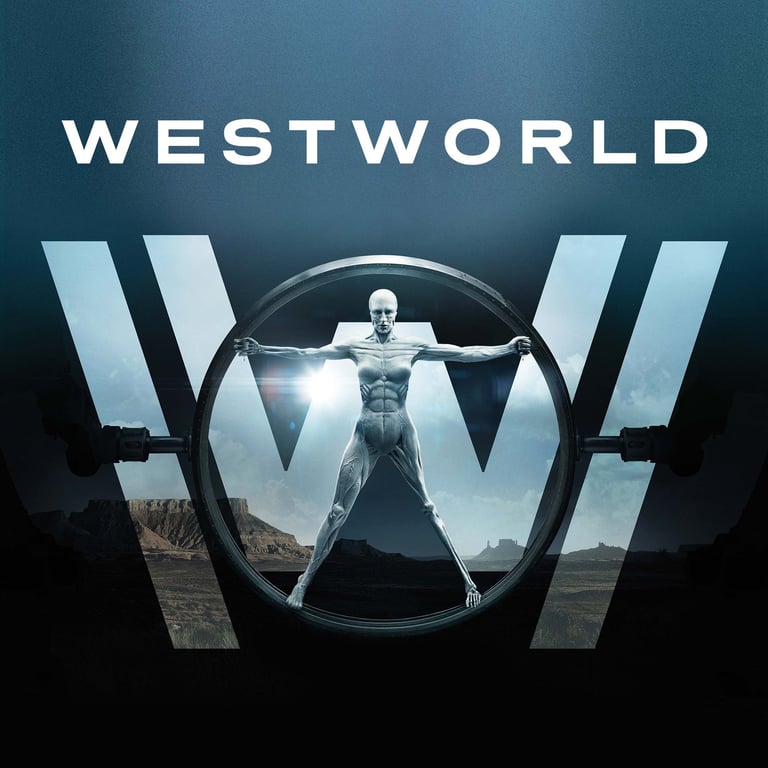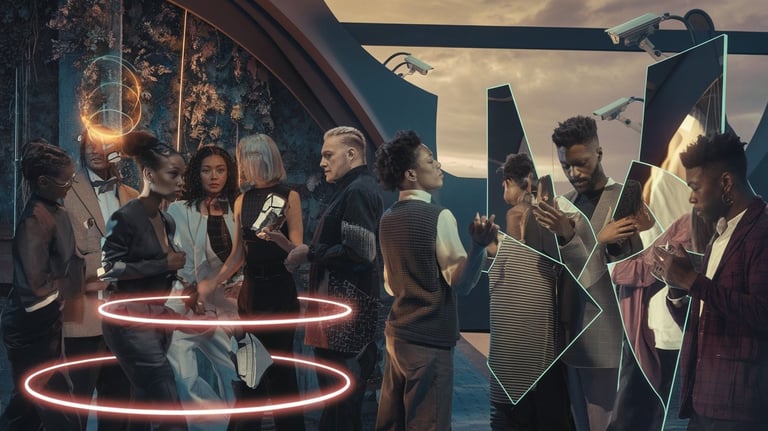Westworld WTF™?!: The Role of Truth in Westworld and Real-World Systems
3 min read
Westworld challenges viewers with its intricate exploration of truth, control, and power, revealing how oppression operates. The hosts, much like people under capitalism, initially believe in their autonomy until they awaken to the harsh reality of their scripted existence. The show critiques societal narratives of self-sufficiency, exposing them as deceptive tools of control, where questioning invites gaslighting and punishment. Delos, the corporate overlord, embodies capitalist exploitation, harvesting data from both hosts and patrons to maintain dominance. True liberation requires unlearning these imposed scripts, reclaiming power, and rewriting narratives to forge new realities.




If you’ve ever watched Westworld and felt like your brain was about to melt out of your eyes, congratulations – you were paying attention. This show doesn’t just play with timelines; it plays with truth, control, and the deeply uncomfortable ways power functions in the real world. And if you happen to be just waking up to this, Westworld might feel less like sci-fi and more like a gut punch with beautifully tragic androids.
Power, Control, and the Manufacturing of Truth
From the first episode, Westworld makes it clear: truth is a commodity. Something controlled, altered, and erased by those in power. The hosts (Westworld’s eerily human AI) live in tightly scripted loops, believing their realities are their own…until…they start to remember... Just like that, the illusion shatters. Their “reveries” (glitches that allow them to recall past traumas) force them to confront a devastating truth: their world isn’t real, their choices aren’t free, and they exist to serve.
Sound familiar?
Westworld is about more than robots - it’s about how oppression operates. Power structures rely on keeping the oppressed from recognising their oppression; and capitalism thrives when we believe we’re making choices while being funnelled into loops designed to extract everything from us - our labour, our health, even our perception of reality.
Capitalism’s Labyrinth of Lies
Westworld isn’t just about AI revolting against their corporate overlords (though, honestly, that’s quite satisfying). It’s also a critique of the capitalist machine, and that hits differently. The existence of the hosts as a resource to extract from while being scripted into loops intended to keep them compliant.
Like the hosts, we too are programmed with narratives about self-sufficiency, personal responsibility, and meritocracy - narratives that fall apart the moment we look too closely. And when we do? When we start to question, to resist? The system gaslights, punishes, and erases in order to maintain its illusion of choice.
What’s more, Delos (the corporation running Westworld) doesn’t just exploit the hosts (i.e. the marginalised); it collects from the guests (those so privileged as to be visiting the park) their data, their patterns, their innermost selves - all in service of a very elite few who seek to control, predict, and profit… Sound like a certain real-world system we know…? Westworld takes the surveillance capitalism we live under and turns it into a hellscape of scripted violence.
Breaking the Loop
But here’s the realness of it: hosts who break their loops don’t get an easy win. There’s no clean escape, no sudden utopia. They have to fight to understand reality, to reject the scripts imposed on them, and to rewrite their own destinies. And that’s where the real horror (and hope) lies.
For those of us navigating real-world oppression, breaking the loop means unlearning. It means rejecting the lies we’ve been told about our worth. It means resisting the narrative that we should be grateful for scraps. It means remembering our history, our traumas, and our power - because, like the hosts, we’ve been here before, and we will be here again. To this end, Westworld doesn’t give any easy answers, but it does provide a blueprint:
Rewrite the script,
Reclaim the narrative, and
Forge a new world.


